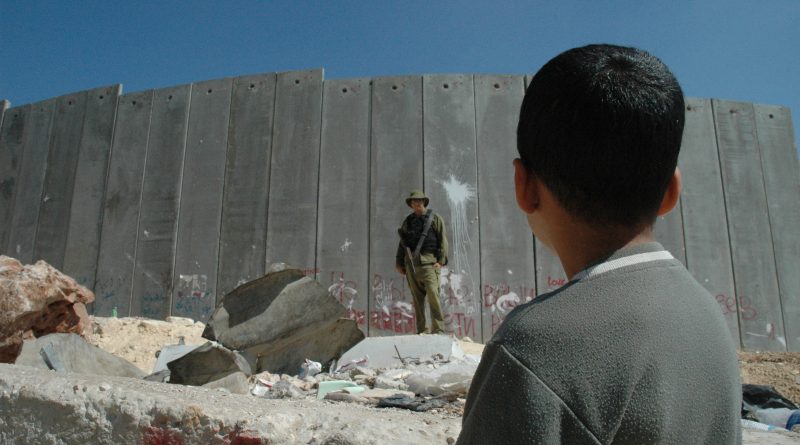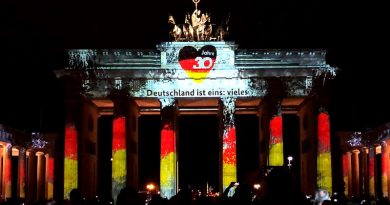As Israeli-Palestinian Tensions Boil, Egypt Resumes Role as Regional Mediator
By Stephanie Miller
Staff Writer
On October 4, a senior delegation belonging to the Palestinian fundamentalist movement Hamas concluded its trip to Cairo, signaling the end of another round of Egyptian-mediated negotiations between Hamas and rival Palestinian faction, Fatah.
The Middle East North African Financial Network reports that the meetings lasted over four days, taking place at the headquarters of Egypt’s General Intelligence Service. Amongst proposals for reunification efforts, the talks allegedly included plans for a long-term cease-fire agreement with Israel, which could lead to a potential reprieve from the continuing regional violence.
Meanwhile, just outside Hamas’s home city of Gaza, the Israel Defense Force (IDF) continues to reinforce its regional military presence to prevent further terrorist infiltration. The Jerusalem Post reports that these movements are in direct response to Hamas’s vow to intensify violent rioting in the Gaza Strip, which began as protests against the collapse of cease-fire talks with Israel earlier this fall. Israel’s reinforcements also include the deployment of its Iron Dome missile defense systems.
Hamas prefers to engage in reconciliation talks with Israel than with Fatah, which comprises the United Nations -backed Palestinian Authority. Former Israeli Internal Affairs Minister Ofir Pines suggested to Israeli television network i24 News that there exists an unwritten agreement between Hamas and Israeli President Benjamin Netanyahu that Gaza should stay out of the control of the Palestinian Authority.
Palestinian Authority Religious Affairs Advisor, Mahmoud al-Habash, also discussed the issue with i24 News, stating, “Hamas seems to prefer to go toward reconciliation with Israel rather than toward reconciliation with its own people and with the PLO. This is very important. We are all supposed to arrange the Palestinian house and then look for deals with foreign entities.”
Since the weekly March of Return protests began in Gaza on March 30, 2018, almost 200 Palestinians have been killed in clashes with the IDF on Gaza’s border. The casualties also include some 50 Hamas members, according to Al Jazeera.
Since the Arab Spring, Egypt has had to focus its attention on a number of internal issues including sex and labor trafficking, terrorism, and continuous social upheaval. However, Emirati newspaper The National reports that given the thawing political tensions between the authorities in Cairo and Gaza, Egypt has started to move back into its traditional role in the region as conflict mediator – a role that the United States embodied until recently.
According to NPR, Palestine’s unwillingness to cooperate in negotiations culminated in the United States’ decision to withhold $300 million from the United Nations Relief and Works Agency for Palestine Refugees (UNRWA), a move that has upended fifty years of bipartisan opposition and signaled a sharp deviation in U.S.-Palestinian relations. In recent months Egypt has stepped up to fill the vacuum of influence left over, and according to Egyptian news source Mada Masr, those efforts have culminated in general success.
Anonymous Palestinian sources close to the talks confirm “the terms of the truce aim to keep violence between Palestinian military factions and Israel to a minimum… The Israeli government asked the Egyptians to solve this matter with the fewest political losses possible, since Egypt did a great job as the middleman in mediating the [2011] Shalit [prisoner exchange] deal, further reports Mada Masr.”
In addition to acting as the primary mediator in the current Israeli-Palestinian peace talks, Egypt has also stepped up to lead relief efforts for the people in the Gaza Strip. According to Egypt Today, the Egyptian government successfully lobbied the Arab League to condemn the U.S. decision to stop funding UNRWA, stressing that it was not entitled to do so and that the UN General Assembly Resolution of 1949 still mandated that UNRWA should provide services in all fields to Palestinian refugees until their issue is resolved “in all its aspects.”
In an interview with Bloomberg Press, Egyptian Foreign Minister Sameh Hassan Shoukry addressed the standing question as to whether Egypt and the Arab League were providing relief to UNRWA in response to the absence of American funding. He states, “Since the commitments made by the Arab and non-Arab states to fill the gap that has been created by the withdrawal of American support to UNRWA, [we do so] out of the recognition of the important role that UNRWA plays in the humanitarian needs of the Palestinian people.”


